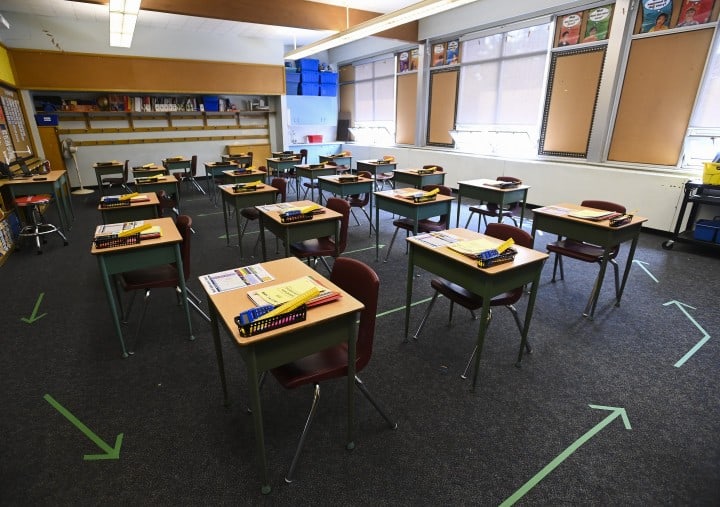Extended online learning could broaden so-called ‘performance gap,’ experts say
Published January 28, 2021 at 7:53 pm

Some students will emerge from this year’s extended period of online learning lagging far behind their peers, experts and teachers warn as they try to mitigate the situation.
Evidence suggests that while remote learning works well for some, it can broaden the so-called “performance gap” for others and affect students for years to come, experts said.
That’s compounded for many children with learning disabilities and those without access to up-to-date technology and plentiful parent support, said Todd Cunningham, a professor with the Ontario Institute for Studies in Education at the University of Toronto.
“Those who have access to this stuff, they get more practice, their skills get better, they’re able to get more learning opportunities,” Cunningham said. “Those who don’t have those same opportunities, though they keep developing, aren’t developing nearly at the same rate. So we see the gap getting wider and wider and wider.”
Experts suggest that could result in some students — predominantly those whose parents aren’t home during school hours because they can’t work remotely, and those who live in poverty or in communities without strong internet access — opting not to continue their learning, be it by dropping out of high school or choosing not to pursue post-secondary education.
As it stands, hundreds of thousands of students across southern Ontario are learning from home, and have been since school returned following winter break.
“Though all students are being impacted right now for this extended period, there are definitely going to be populations that typically already are disenfranchised, that are going to probably be more disenfranchised during this time,” Cunningham said. “We need to put extra attention in supporting them as we return.”
Sarah Barrett, a professor of education at York University, said that to do that, teachers can employ strategies similar to those used when students return from summer vacation.
“Over the summer, students tend to lose a little bit of what they learned the year before, and so usually the first couple of weeks, there’s a bit of a review and catch up,” she said. “This review is going to be a little bit more intense (when in-person learning resumes).”
Teachers will have to work to get kids motivated about learning again — but that’s not going to be the hard part, Barrett said.
“The question is, what do you then do about the system? Because the system has things like standardized tests. It has things you’re expected to finish learning at a certain level,” she said. “Is that realistic anymore?”
School boards and the Education Ministry should adapt and become more flexible about those benchmarks, Barrett said, because it’s not fair to penalize kids for falling behind academically in a time of crisis.
Danielle Staffen, a Grade 5 teacher with the Halton District School Board, said she’s already seeing prolonged online learning take a toll on some students more than others.
“We’re really keeping in mind that the expectations placed on students for academics are adult expectations,” she said. “We’re going to try to meet (the kids’) expectations first, while also reaching towards the grade curriculum goals.”
Staffen has students who are spread out across various schools in her online classes.
“We have students without secure Wi-Fi connections and students without access to enough devices or adequate devices,” Staffen said. “We have students who come from a range of different support systems at home.”
All of those factors affect students’ abilities to keep up with the class, she said, and she’s trying to manage parent expectations by talking to them about how marks might look a little different this year.
“We can’t necessarily evaluate the work process as well as the finished product,” Staffen said.
“So there’s a little bit more focus on the end result for some of those students who didn’t participate in classroom discussions, or who don’t have their cameras on, or who are reluctant to communicate with groups when doing group work”
She’s also trying to prevent kids from falling behind by keeping them engaged with the class.
“We’ve really put a focus on getting to know these students as individual people — having them create slide shows and drawings about the things they’re interested in, what they like to do, having them show us different things from their house,” she said.
Ultimately, Staffen said, teachers will do what they can to catch everyone up when it’s safe to return to the classroom.
“We will get back to working with them as closely as we can to try to bridge those gaps as quickly as we can.”









